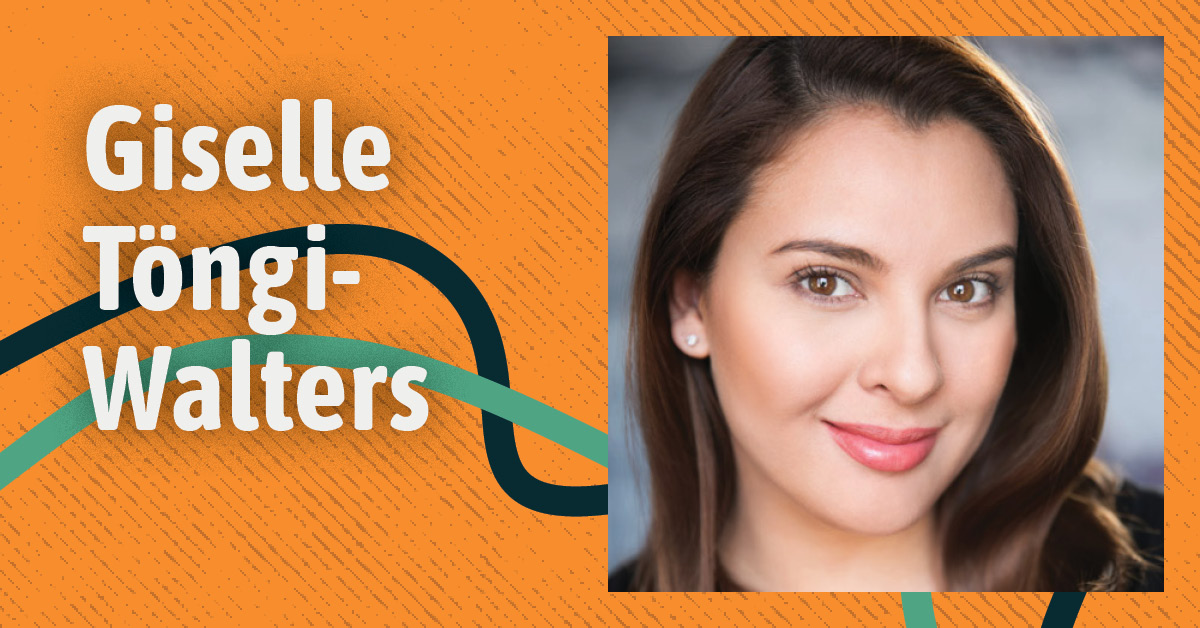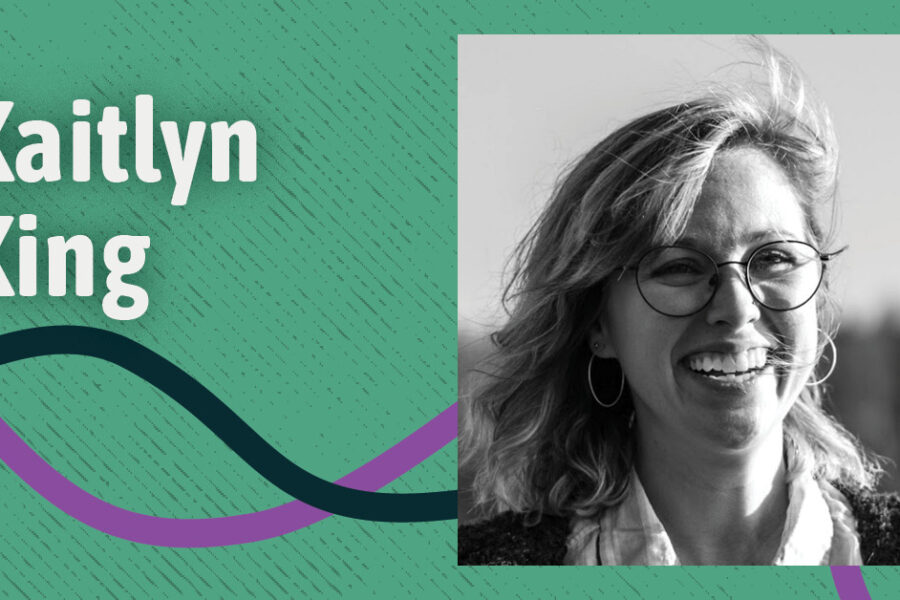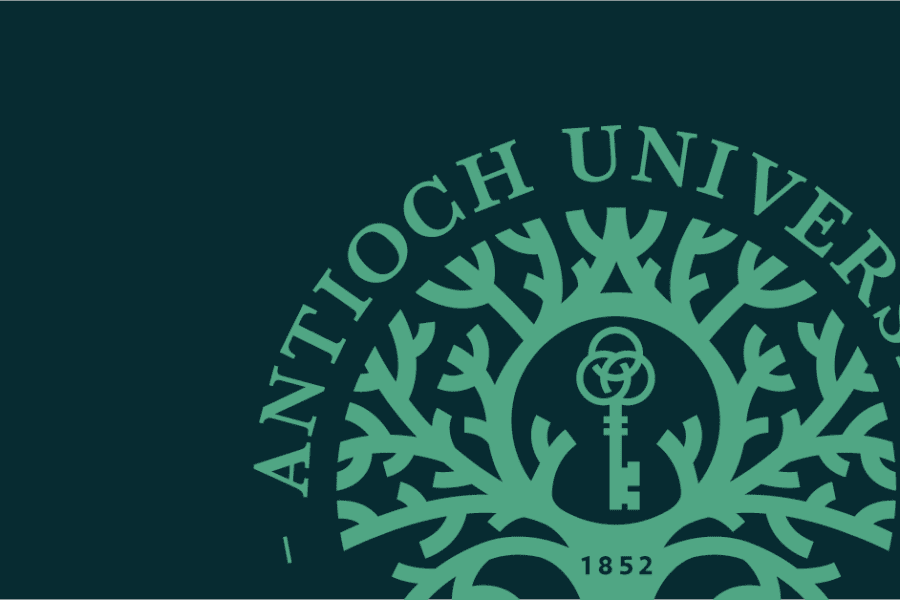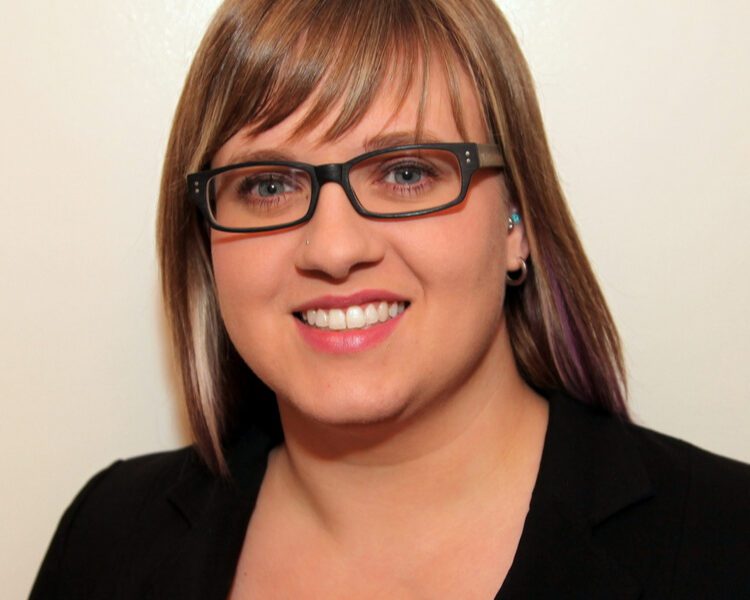When you are open to possibilities, life can lead you to exciting and unexpected places. For Giselle Töngi-Walters, a recent graduate of Antioch’s MA in Nonprofit Management, life has included stints as a model and an actress in the Philippines, immigration to the US, hosting a TV talk show, and graduating from both UCLA and, now, graduate school at Antioch. She’s done all of this without having completed high school. And she’s finished these degrees while raising two children.
It’s only possible because Giselle has a profound passion for using her voice to advocate for the Filipino American Community. Now, as she takes on a new role as Executive Director of the arts and culture nonprofit FilAm Arts, a Los Angeles-based organization that presents the annual Festival of Philippine Arts and Culture, Giselle has the chance to put all of her skills together, serving her community and the common good.
It’s the perfect position to use all of the skills that she’s developed over a distinctive and varied series of educations.
A Childhood as a Citizen—and Star—of the World
Giselle was born in France to a loving Swiss-born, Australian father and Filipina mother. Tragedy struck just eleven months later when her father unexpectedly passed away due to a scuba diving accident. Her mother was forced to raise her as a single mother together with her other three children from a previous marriage. They ended up leading a peripatetic existence, traveling between the Philippines, Europe, and New Jersey.
“I moved to the Philippines for the first time when I was five,” Giselle explains. Her mother strapped a passport around her neck on her first trip to Manila. “When I landed in the Philippines, as soon as the airplane doors opened my godmother was standing there. So traveling and going back and forth was something I did.”
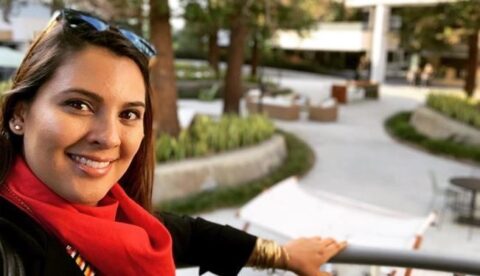
Giselle attended six or seven different schools during her primary years. “Preschool I was in Zurich, and then kindergarten was in the Philippines.” By first grade she was in New Jersey. “And then second and third grade I was in the Philippines. Fourth and fifth grade I was in New Jersey. And then sixth grade I was in Manila.”
Before finishing her junior year of high school, Giselle’s growing theatrical passion became a career. She began booking work as a model and eventually an actor.
“I went to the Philippines,” she explains. “I started modeling, and then I got discovered by my mentor Eric Quizon and started acting … I tried to take a couple of courses at the University of the Philippines but was just too busy.” She dropped out of high school not because she didn’t value education but because life was moving so fast.
As she says, “The fact that I’ve graduated grad school when I never even graduated high school I find really amusing.”
A Shift to Educational Priorities
Fast-forward two decades, and Giselle had left her fame as a Filipina celebrity to move to Hollywood, where she met her husband and had her son and daughter. But it was this very family that encouraged her to find the next chapter in her career.
“I’m a mom,” she explains, with warmth in her voice. “I’m also a wife, and the only reason I can do everything that I do is that my family is my complete support system.” After her daughter was born in 2007, she decided to take a couple of courses at Pierce Community College to get her Associate in Arts degree. Giselle wanted to be a role model to her new baby girl, Sakura Anne Marie Walters.
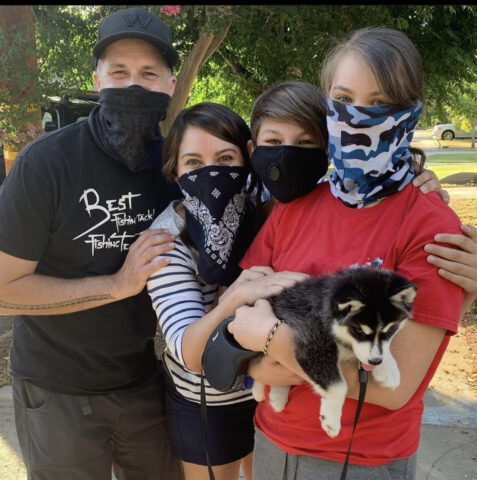
Additionally, as she says, “for the first time in my life, I was home…I had a baby at home who was two years old, and I was pregnant.” She replaced the drive that she previously focused on her acting to focus on schoolwork. Giselle thrived, and within two years she had graduated with honors.
In those two years she had developed a plan. “I spoke to my advisor to say I really want to go to UCLA, and I want to go to the communications department; how am I going to get there?” Her counselor advised Giselle that she had to graduate with honors to transfer to UCLA for a bachelor’s degree.
This focused her attention. “I became the person in school who would say, ‘Excuse me. Did you forget to give us homework?’”
Her determination paid off, and in 2011 the high school drop-out graduated from UCLA. But she found she loved school so much that, as she explains, “I didn’t want to leave UCLA. I had to petition for an additional semester so that I could double minor in film, T.V., digital art, and theater because I was just having such an amazing time.”
At this time in her life she began to understand how social services can help those who would traditionally be excluded from higher education, because of childcare needs and parental responsibilities. When she started at UCLA, she was eligible to go to UCLA University Village and use its daycare facilities. This enabled her to focus on her studies, secure in the knowledge that Sakura and her younger brother Kenobi Benjamin Walters were well cared for.
As she says, “I would have never been able to achieve…graduating honors from UCLA with two small children had I not had that kind of support.”
70 Balikbayan Boxes
When Giselle graduated from UCLA, she had a plan. “I was going back to the Philippines to be a producer.” She packed up her life and sent it through Forex Cargo to start afresh back in the Philippines.
In Filipino culture, the term balikbayan is very important. It translates to “return to the country.” But many immigrants, unable to return in person, send carefully packed “balikbayan boxes” back to family members who have remained in the Philippines. These balikbayan boxes are often packed with chocolates, clothes, toys, and other goods that are more available in the U.S. Giselle describes it as an iconic symbol of Filipino culture. And as she explains how she prepared to return to the Philippines, she says she didn’t skimp on balikbayan boxes: “We shipped seventy of them home.”
Upon the Walters family’s arrival in the Philippines, Giselle began work on her first documentary. It was about a second-generation Filipino family discovering their roots in the Philippines. “I produced it,” she says. “I wrote it. I edited it. It took me six months.”
She was very proud when she finished it, but not everyone was pleased. Giselle might have been prepared to make the shift from actress to a producer, but the industry was not. “When I was in the Philippines, I was struggling with really trying to transition from being an actor to being a producer and a social media journalist,” she says. Most fans wanted her back in front of the camera.
Giselle wanted meaningful, substantial work. That’s when she met Time Magazine Person of The Year for 2018, Maria Ressa,who she also considers one of her mentors. Ressa was willing to allow her to work as a social media producer. It was great work for a budding talent behind the camera. “I would write stories, produce the video for broadcast,” says Giselle. “I would edit them.”
Advocating Through the Airwaves
In 2014, Giselle’s world turned again. She heard that an Asian-American TV station in Los Angeles was looking for a Filipino producer. KSCI (channel 18 in the LA area) offered her the job as both host and producer. She became the host of a daily talk show: Kababayan Today with G. Töngi.
“I produced the daily talk show after Janelle So,” she explains. “I wanted to create a show that had meaningful substantial topics about Filipino American life.” Her passions had finally intersected, and her way forward became clear. Giselle realized that she could use her extensive media training to speak up for Filipino American’s and Filipino’s social plights.
She worked hard to expose the judicial killings that were going on in the Philippines at the time. “I got invited to go to Brussels to cover the international people’s tribunals,” she says. Her work with the Filipino American Community had a strong focus on social justice.
Giselle had long been disturbed that because the Philippines is a Catholic country that strictly restricts access to birth control and abortions, women put themselves in harm’s way to control their own reproductive rights. While studying at UCLA she had read the story of a mother of eight who had thrown herself down a flight of stairs when she learned she was pregnant again. “She had no means,” says Giselle, still distressed. “And when I read that in college, I was like, I need to do something about this.”
When she and her family moved back to the Philippines, she explains, that is “when the whole reproductive health bill was being discussed in Congress. It went to the Supreme Court.” Giselle took to marching in the streets of Manila to give voice to the impoverished women and their families—and to advocate for women to have control over their own bodies.
She eventually went to Baguio to hear the supreme court hearings on the Responsible Parenthood and Reproductive Health Act of 2012 (R.H.). As she says, “That’s really where I understood the importance of advocacy, aligning with organizations because I was meeting people like Catholics For Reproductive Health,” an advocacy organization that is trying to reclaim the conversation around faith and reproductive rights.

Giselle recognized that her celebrity could be of use in these movements, and she began working with Likhaan Center for Women’s Health. (She now sits on its Board of Trustees.) Giselle related to the Filipina struggle, and “that really made me understand the importance of nonprofit work,” Giselle explains.
So when she began producing her daily talk show, she dove into the local Filipino-American nonprofits in L.A.
That work has continued, even after the end of Kababayan Today in 2017. Giselle helped to raise over $25,000 to support those who were displaced by the Taal volcano eruption last year. This fundraising happened through her work as Communications and Community Partnership Director at the popular family-owned supermarket chain Island Pacific Market. CEO and Founder Nino “Jeff” Lim requested she travel back to her mother’s hometown of Batangas and personally deliver the “check” to various local government units and nonprofits.
As she found, several of her “kababayans” or countrymen had been affected by the devastation, and ash was everywhere. Even once she got there, “Breathing conditions were terrible,” Giselle says. “I remember posting a photo of myself with a big mask respirator with two valves, you know, that you would never wear.” Or so she thought.
Studying Nonprofit Management During a Pandemic
The COVID-19 pandemic has been one of the biggest challenges Giselle has ever faced. A social and vibrant member of her community, Giselle has been stuck at home in Los Angeles, largely unable to see friends and definitely unable to visit the Philippines. Luckily, she has had something else to focus on: her studies.
In 2019, Giselle began Antioch’s MA in Nonprofit Management. She had chosen Antioch in part because of its social justice perspective. But ironically, she also had chosen the program in part because it had an in-person component: taking classes, visiting nonprofits, and interacting with classmates. She wanted that interaction with her fellow students and face-to-face instruction.
The pandemic forced her to shift her learning style. But she succeeded, and just this spring she graduated with a master’s degree. It’s a long way to come from the girl who gave up high school for a burgeoning showbiz career.
And now the degree has led to a new position, too: Giselle has been named Executive Director of the arts and culture nonprofit FilAm Arts. She’s already been serving as programing director at the nonprofit since 2019, and this last year through her leadership adaptively pivoted to present two festivals entirely virtually. But now, with her new degree, Giselle is taking on the directorship and a new chapter in her life. It’s exciting to be a certified nonprofit professional, and it’s a role that she’s well prepared for—even if that preparation has been a winding road.
“The traditional route isn’t for everybody,” Giselle says. She wants to share her story to let people who have taken less traditional paths know that if you desire to learn, there are ways to achieve your goals, even through a pandemic.

